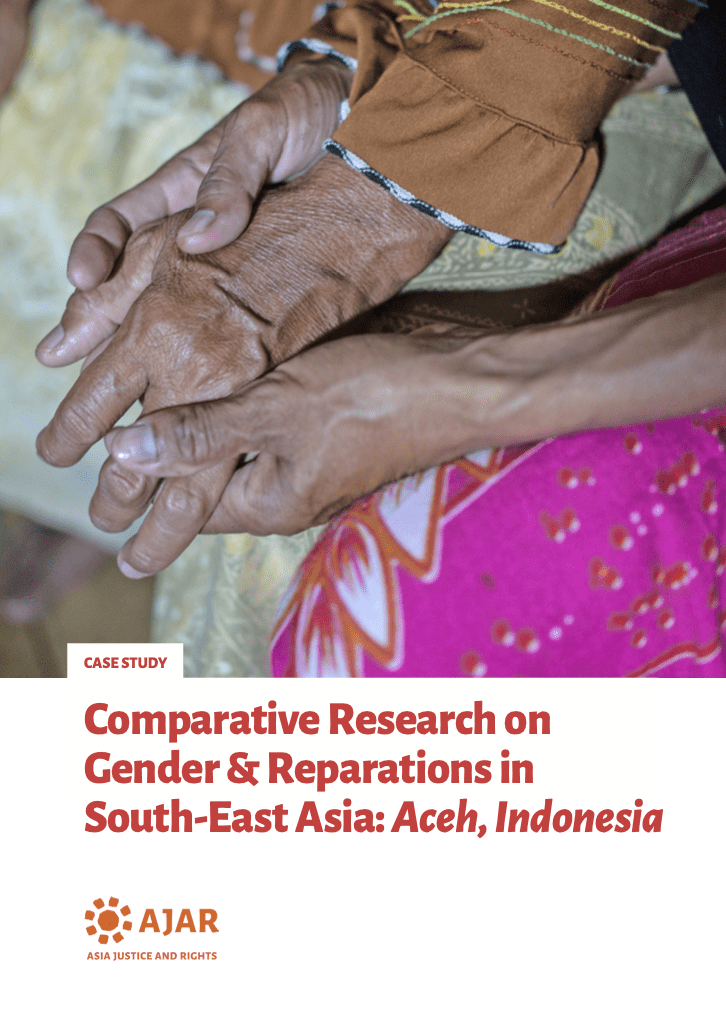Aceh has maintained its formal peace after turbulent civil conflicts, martial laws, and a tsunami for seventeen years. The Acehnese community continues to thrive with their own local laws and regulations as attempts to build reparation for a long-lasting peace. The road to justice and permanent peace, however, is still full of obstacles. This research is about how women victims in Aceh access and experience reparations after years of CSO-based (Civil Society Organisations) and formal reparation programs take place. The research focuses on women who are political prisoners and victims of torture, sexual and gender-based violence (SGBV). By understanding the challenges and opportunities faced by Acehnese women victims for justice and peace, we offer key findings and some policy suggestions for policymakers and the community actors.
We gather the data from two villages, amounting to 74 women. All of the women experienced torture due to their family members’ affiliation to the Aceh Freedom Movement (Gerakan Aceh Merdeka, GAM). A handful of them (48%) survived sexual assault and violence in various forms. At least 32% of women suffered from material loss, and all of the women expressed psychological distress given the trauma during the conflict. The condition does not only affect them individually, but their relationship with family and community members. Although this research focuses on women, we also recorded the sexual violence and harassment employed as torture that men victims suffered during the conflict.
